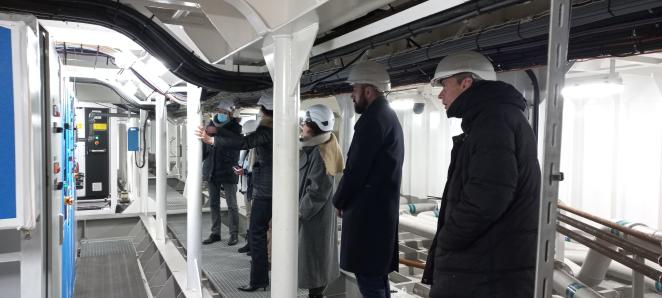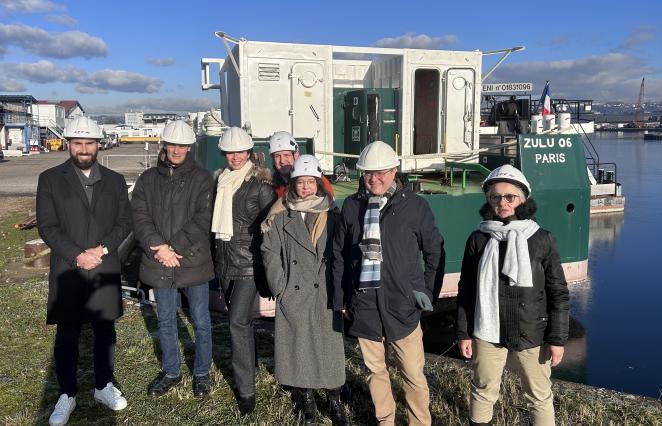FFC8 Key Challenge
The FFC8 pilot targets low-emission propulsion for barges along the River Seine, focusing on hydrogen (H2) and renewable energy integration in inland waterway transport (IWT). Initially, the project will upgrade the ZULU 03's diesel engine (SCANIA V6) and later test ZULU 06 with hydrogen fuel cell technology. This aims to showcase how vessel engines can shift toward cleaner alternatives, ultimately building a roadmap for future applications that align with anticipated regulations.
This initiative supports European climate targets, including reducing greenhouse gases (GHG) by 50-55% by 2030 and achieving a 90% reduction in the transport sector by 2050 for climate neutrality. While ambitious frameworks like Fit for 55 focus on overall emissions reduction, inland waterway transport remains without specific targets

FFC8’s objectives
- Why?
To promote greener inland waterway transport (IWT) for urban distribution by using alternative fuels with the innovative ZULU barge. - How?
By testing customer flows in real-life conditions and comparing the performance of HVO fuel and hydrogen (H2). - Where?
On the Seine axis in the Paris area, between the Gennevilliers Port hub and urban wharves in the city center.

Project Partners
CIRCOE (FFC8 Lead): Center for Technology and Innovation Transfer
IDIT: Legal Expertise
Sogestran Logistics: Boat Operator and Builder
VNF (Associated Partner): River Management Authority
Latest News
During the summer of 2024, the Olympic Games in Paris brought unexpected disruptions to InnoWaTr’s urban waterway services, especially along the River Seine. Despite these challenges, we remained resilient and found creative solutions to continue operations and serve our customers.